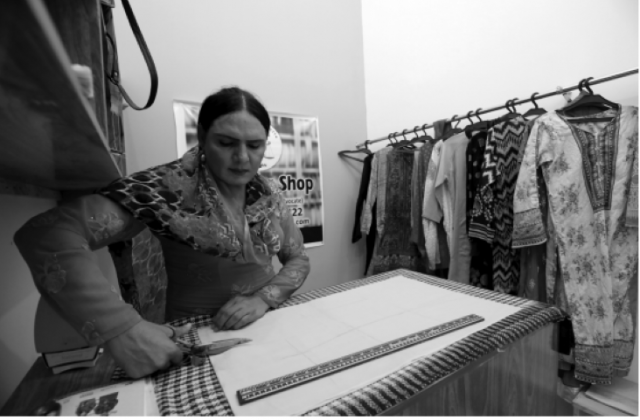Trans woman breaks barriers, sets up tailor shop
Many landlords were reluctant to lease out to a transgender, says Jiya

As transgender woman Jiya measures customers at her tailoring shop in a brand new Karachi market, her eyes gleam with the prospect of a busy Ramazan and her ambitions to expand. Already, Jiya, 35, who goes by a single name like many transpeople in Pakistan, has broken ground by opening a public shop to make clothes for women and transgender women.
Other trans people running tailoring businesses have tended to do so out of their homes, wary of ostracism in a country where khwaja siras are often subjected to discrimination.
Many landlords were reluctant to give a shop to a transgender woman, Jiya told Reuters at The Stitch Shop in the southern port city. She finally secured one in a new market, which she opened with two other trans women in March in time for the start of Ramazan in mid-April.
The holy month is traditionally a busy period for tailors as people buy new clothes for Eidul Fitr celebrations.
For Jiya, who studied at an all-boys school and learned tailoring with the help of fellow trans women, opening her shop marks the start of her ambition.
"We want to expand this business. We want a boutique with Eastern and Western designs, all types of dresses," she said. Many of her customers are women, who said they preferred that a transgender woman makes their clothes, a change from most other tailoring shops run by men.
"I felt comfortable while she took my measurements," customer Farzana Zahid said.
Pakistan's parliament recognised the third gender in 2018, giving trans persons fundamental rights such as the ability to vote and choose their gender on official documents.
A 2017 census recorded about 10,000 transgender people, although trans' rights groups say the number could be well over 300,000 in the country of 220 million.



















COMMENTS
Comments are moderated and generally will be posted if they are on-topic and not abusive.
For more information, please see our Comments FAQ